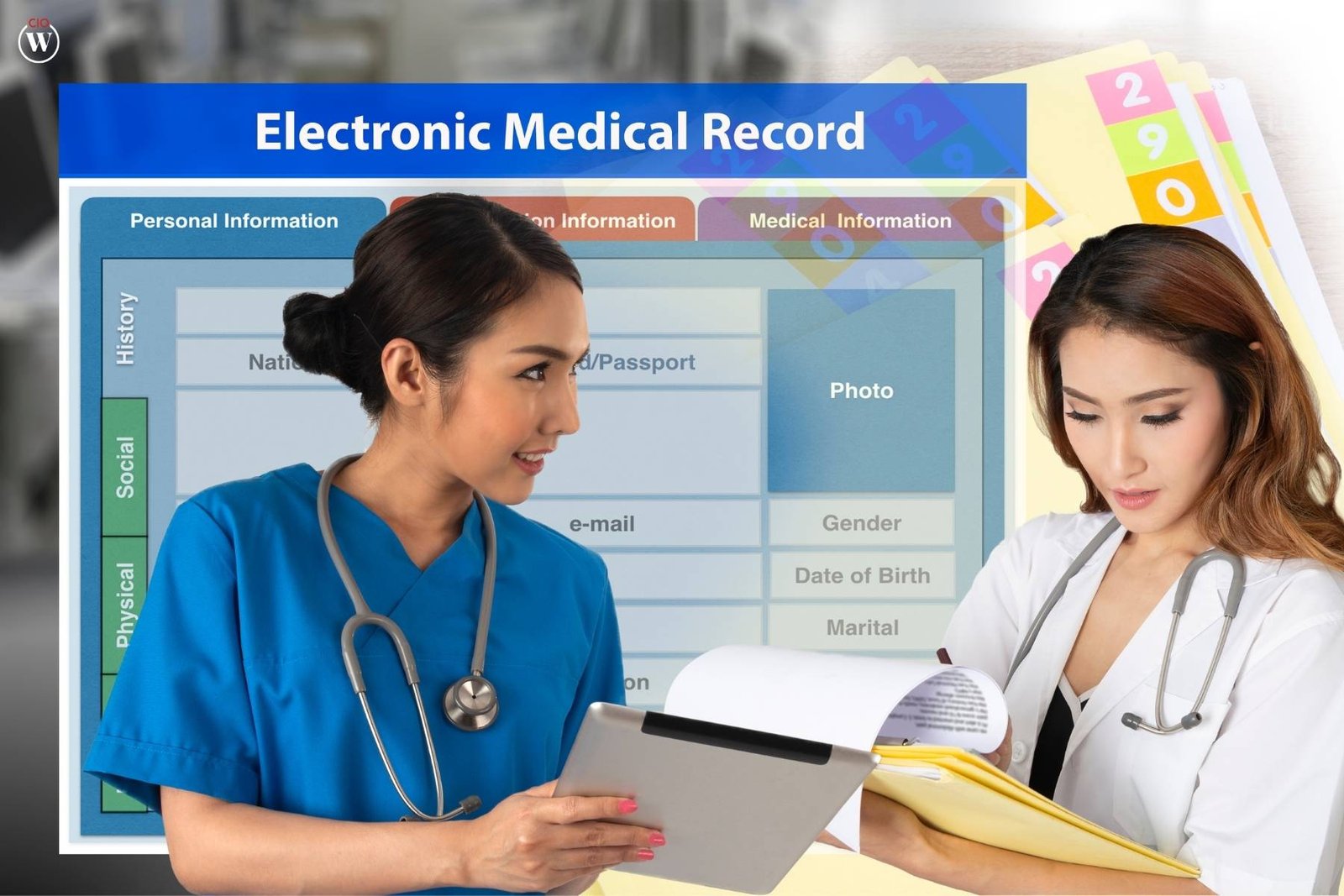The integration of Information Technology (IT) has become indispensable in healthcare. The blend of technology and healthcare has not only streamlined administrative processes but has also revolutionized patient care. As the demand for digital solutions in the medical field continues to soar, a plethora of lucrative IT jobs in healthcare has emerged.
In this article, we will explore ten IT jobs in healthcare that play a pivotal role in shaping the future of healthcare:
1. Health Informatics Specialist:
- Average Salary: $80,000 – $120,000 per year
- Qualifications:
- Bachelor’s degree in Health Informatics, Healthcare Management, or related field
- Certification in Health Informatics (e.g., Certified Health Data Analyst)
Health informatics specialists are at the forefront of the intersection between healthcare and IT. These professionals leverage their expertise to manage, analyze, and interpret health data. Their role involves developing systems that organize and store patient information securely, ensuring that healthcare providers have easy access to critical data. With the increasing emphasis on electronic health records (EHR), health informatics specialists are in high demand, playing a crucial role in enhancing the efficiency and accuracy of healthcare delivery.
2. Telehealth Specialist:
- Average Salary: $85,000 – $110,000 per year
- Qualifications:
- Bachelor’s degree in Healthcare Administration, IT, or related field
- Certification in Telehealth (e.g., certified Telehealth Professional)

The emergence of telehealth has transformed the way healthcare services are delivered. Telehealth specialists are responsible for implementing and managing remote healthcare solutions, facilitating virtual consultations, and ensuring the seamless functioning of telemedicine platforms. The COVID-19 pandemic has accelerated the adoption of telehealth, making this role even more critical in the contemporary healthcare landscape.
3. Clinical Data Analyst:
- Average Salary: $70,000 – $100,000 per year
- Qualifications:
- Bachelor’s degree in Data Science, Statistics, or related field
- Proficiency in data analysis tools (e.g., SQL, Python)
- Healthcare analytics certification is a plus
Clinical data analysts are essential for extracting meaningful insights from vast amounts of healthcare data. By utilizing data analysis tools and techniques, they identify trends, patterns, and correlations within clinical data sets. This information not only aids healthcare providers in making informed decisions but also contributes to the development of personalized treatment plans and predictive healthcare models.
4. Healthcare Software Developer:
- Average Salary: $90,000 – $130,000 per year
- Qualifications:
- Bachelor’s or Master’s degree in Computer Science, Software Engineering, or related field
- Proficient in programming languages (e.g., Java, C++, Python)
- Experience in healthcare software development
Generally, software developers are found in the IT industry. However, Healthcare software developer is among the hottest IT jobs in healthcare right now. Healthcare software developers design and create applications that cater to the specific needs of the healthcare industry. From developing mobile apps for patient engagement to designing complex healthcare management systems, these professionals are instrumental in advancing the technological capabilities of healthcare organizations. The demand for innovative software solutions continues to grow, making this role highly lucrative in the IT jobs in healthcare sector.
5. Cybersecurity Analyst:
- Average Salary: $85,000 – $120,000 per year
- Qualifications:
- Bachelor’s degree in Cybersecurity, Information Technology, or related field
- Industry-recognized cybersecurity certifications (e.g., CISSP, CompTIA Security+)

With the increasing digitization of healthcare data, the need for robust cybersecurity measures has become paramount. Cybersecurity analysts in healthcare focus on safeguarding patient information, preventing unauthorized access, and ensuring the integrity of medical data. As cyber threats continue to evolve, the role of cybersecurity analysts is crucial in maintaining the confidentiality and security of sensitive healthcare information.
6. Health IT Project Manager:
- Average Salary: $100,000 – $130,000 per year
- Qualifications:
- Bachelor’s or Master’s degree in Project Management, IT, or related field
- Project Management Professional (PMP) certification
Health IT project managers oversee the planning, implementation, and execution of IT projects within healthcare organizations. They work closely with healthcare professionals, IT teams, and stakeholders to ensure that projects are completed on time and within budget. The ability to navigate the complexities of both the healthcare and IT domains makes health IT project managers indispensable in driving technological advancements in the healthcare sector.
7. Medical Imaging IT Specialist:
- Average Salary: $80,000 – $110,000 per year
- Qualifications:
- Bachelor’s degree in Radiologic Technology, IT, or related field
- Certification in Medical Imaging Informatics
Medical imaging IT specialists focus on the integration and maintenance of imaging technologies such as X-rays, MRIs, and CT scans within healthcare systems. They ensure that medical imaging equipment is seamlessly connected to the broader IT infrastructure, allowing healthcare providers to access and analyze diagnostic images efficiently. This role is one of the crucial IT jobs in healthcare for enhancing diagnostic capabilities and improving patient outcomes.
8. Health Data Scientist:
- Average Salary: $90,000 – $120,000 per year
- Qualifications:
- Master’s or Ph.D. in Data Science, Statistics, or related field
- Proficiency in machine learning and data analysis tools
Health data scientists leverage their analytical skills to derive insights from large datasets, contributing to evidence-based decision-making in healthcare. These professionals employ advanced statistical techniques, machine learning, and data mining to uncover patterns and trends that can inform medical research, treatment protocols, and healthcare policy. As the healthcare industry continues to harness the power of big data, the demand for health data scientists is on the rise.
9. EHR (Electronic Health Record) Implementation Specialist:
- Average Salary: $75,000 – $100,000 per year
- Qualifications:
- Bachelor’s degree in Healthcare Informatics, IT, or related field
- Certification in EHR implementation (e.g., Certified EHR Specialist)

The widespread adoption of Electronic Health Records (EHRs) has led to a surge in demand for specialists who can effectively implement and optimize these systems. EHR implementation specialists work closely with healthcare providers to transition from paper-based records to electronic systems. Their expertise ensures a smooth integration process, minimizing disruptions in patient care while maximizing the benefits of digital record-keeping.
10. Biomedical Informatician:
- Average Salary: $95,000 – $130,000 per year
- Qualifications:
- Ph.D. in Biomedical Informatics, Computational Biology, or related field
- Strong background in biological sciences and computational methods
Biomedical informatician is among the best IT jobs in healthcare that bridge the gap between biological science and information technology. They focus on developing and applying computational methods to analyze biological data, contributing to advancements in genomics, personalized medicine, and bioinformatics. With the growing emphasis on precision medicine, biomedical informaticians play a vital role in translating genomic information into actionable insights for healthcare professionals.
Conclusion
The convergence of information technology and healthcare has given rise to a diverse range of lucrative job opportunities. Professionals in these roles not only contribute to the efficiency of healthcare delivery but also play a pivotal role in shaping the future of medicine. As the healthcare industry continues to embrace digital transformation, the demand for skilled IT professionals in healthcare is set to soar, making these roles not only lucrative but also crucial for the advancement of patient care and medical research.
Whether it’s optimizing electronic health records, securing sensitive patient data, or harnessing the power of data analytics, these IT jobs in healthcare are at the forefront of revolutionizing the way we approach and experience healthcare.









